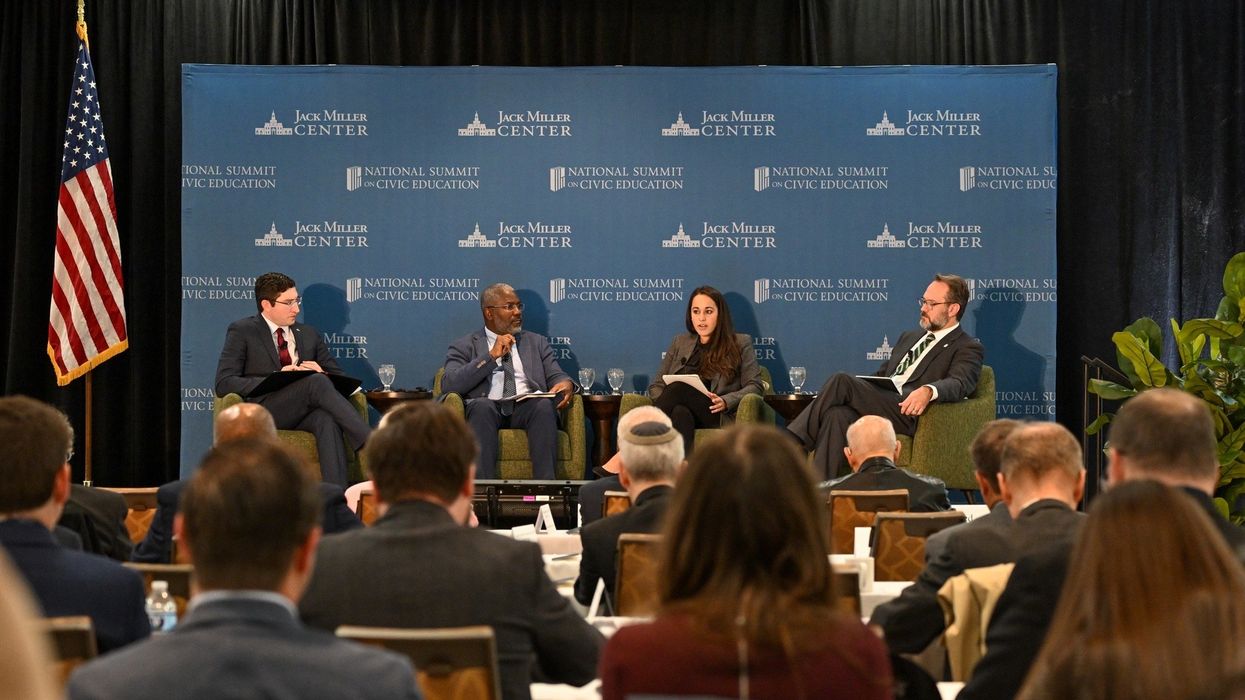Just a week after the election, the Jack Miller Center — a nonprofit organization focused on civic literacy where I serve as president — convened about 185 leaders, educators and philanthropists for a two-day National Summit on Civic Education in Philadelphia. We knew in planning the summit that there was some risk it would be ill-timed in the aftermath of a contentious election.
We decided to press forward. We would lean into civics. After all, what could be more important to the health of our constitutional democracy than to join together around shared civic meaning and purpose?
The summit theme was “Educators and Innovators: Our Civics Moment.” With a lot of work by our extraordinary program team, we put together an agenda that would highlight the voices of educators and innovators who are doing game-changing work to elevate civics as the cause of our age.
In my opening remarks, I told the group that we were there to lift up solutions, not, as a friend likes to say, “to admire the problem.”
Then, Citizen University founder Eric Liu gave a rousing address and made it clear that we had come together for an important cause at just the right moment. Liu spoke of the need for a civic education that emphasizes “better arguments” for the causes we believe in even as we respect one another as fellow citizens, and that emphasizes the importance of “union” even as we embrace our commitments to local community.
An opening plenary session featured inspiring educational entrepreneurs including Ian Rowe of New York’s Vertex Academy, Stephanie Almeda Nevin of Yale’s Citizens Thinkers Writers Program and Matthew Brogdon of Utah Valley University’s Center for Constitutional Studies. These leaders are part of a new wave of innovation in civic thought and leadership studies happening in K-12 schools, higher education and a host of nonprofit organizations educating youth and adults alike.
Participants joined in breakouts focused on civics in classical schools such as Emet Classical Academy in New York, the nation’s first Jewish classical school; religious schools such as those served by the nonprofit organization Civic Spirit; community colleges such as those supported through a new professional development program organized in partnership between the Jack Miller Center, the Great Questions Foundation and the Teagle Foundation; and civics competitions such as the new National Civics Bee organized by the U.S. Chamber of Commerce Foundation.
Repeatedly throughout the two days, speakers and panelists talked about a “civics renaissance” that is getting underway.
Anika Prather, an extraordinary champion for classical learning, took part in the panel on civics in classical schools and later wrote her reflections on the summit. The gathering, she wrote, was about “celebrating democracy and the passion for training the next generation on how to participate in this great American conversation. There were people from different political affiliations, organizations, and faiths Some I agreed with, and some I didn’t….But we all agreed on one thing: that we each have the equal right to exist, think, believe, and speak as we do, and to show respect for others’ right to do the same.”
She continued: “What struck me even more was that there was little talk about the election (thank you, Jesus). Instead, we simply enjoyed being in a democratic community. It was like water for my soul. It was exactly what I needed. This gathering reminded me of my sense of purpose in this work, even after the heartache of the election. It felt like a family room—where we could gather, eat, laugh, hug, debate, and just breathe.”
If a civics renaissance is in the offing, it would be a movement like Prather described — one that brings people together, that builds community and that reminds us all of our shared commitments to constitutional democracy. And it would be a forward-looking movement.
In a plenary session on “Depolarizing Civics,” Jane Kamensky, the CEO of Thomas Jefferson’s Monticello, said celebrations marking the 250th anniversaries of the American Revolution and founding should center on the theme of “launch and invest,” rather than some kind of completion. That doesn’t mean we shouldn’t look to our history to inform our actions in the present. According to political philosopher W.B. Allen, we should “relive the moments of the founding so that re-founding is second nature to us.”
Could there really be a civics renaissance in the works? Let’s pray so. There could hardly be a more fitting way to celebrate America’s 250th birthday.
Zeiger is president of the Jack Miller Center, an educational venture to advance the history, documents and ideals we hold in common as Americans.




















Trump & Hegseth gave Mark Kelly a huge 2028 gift